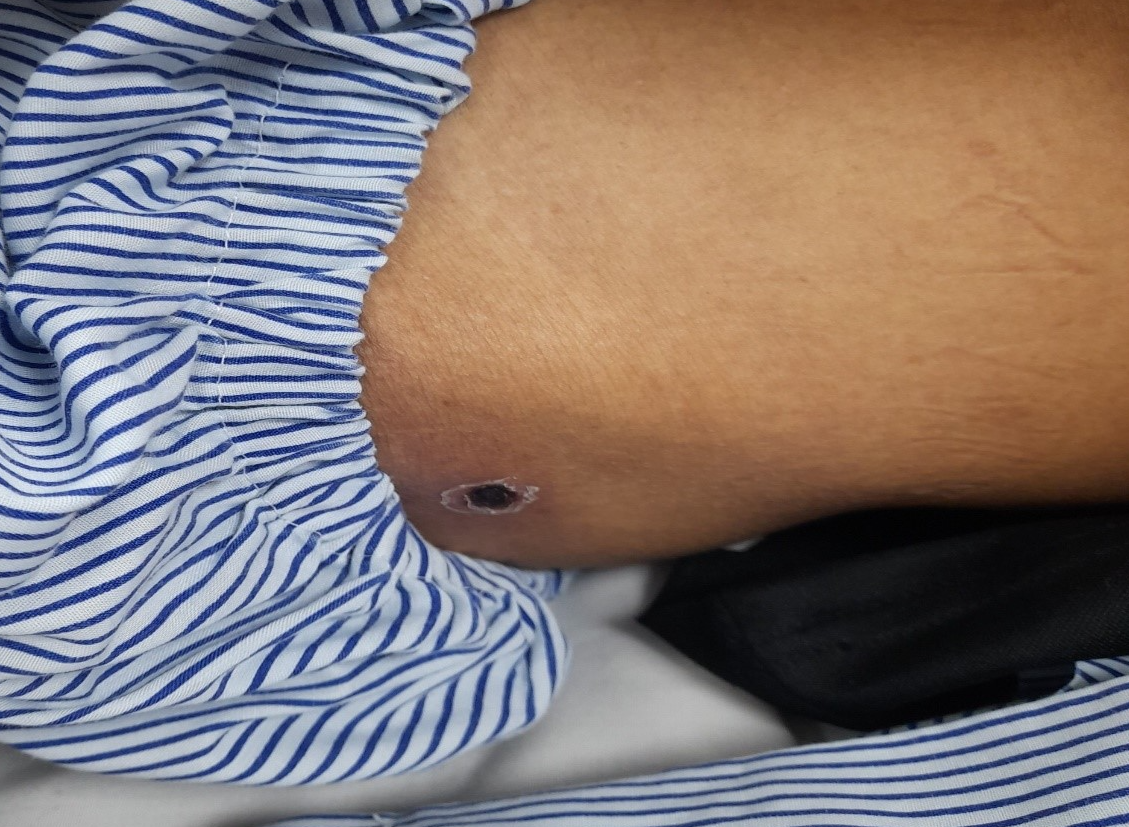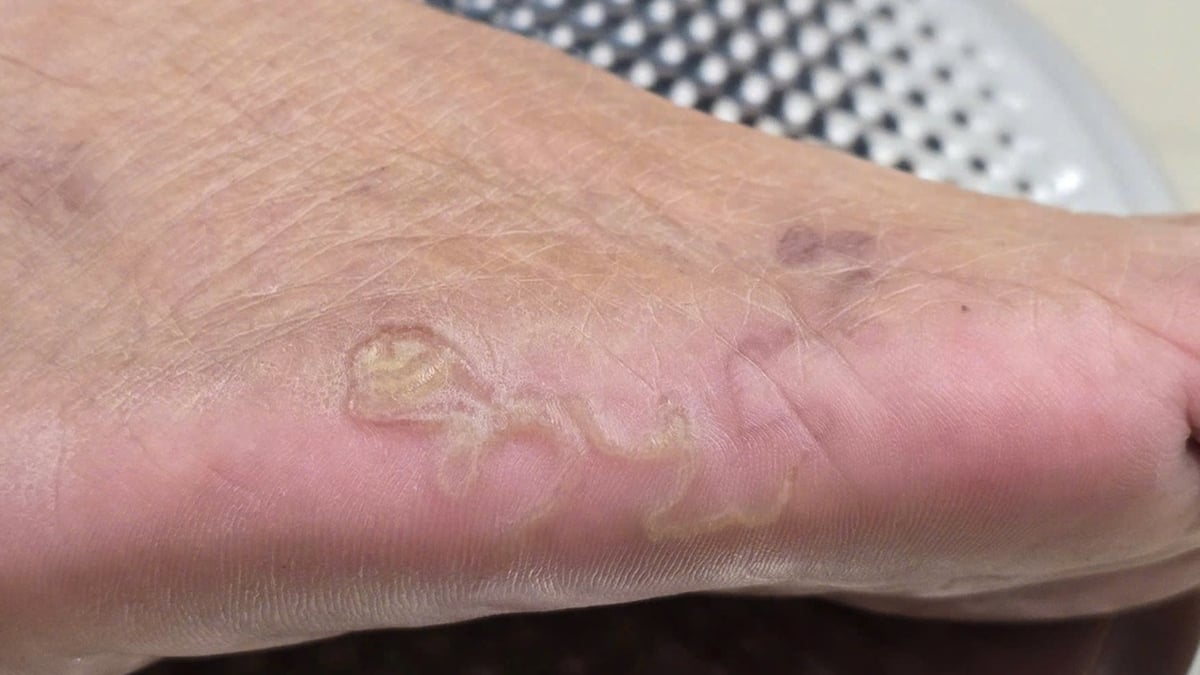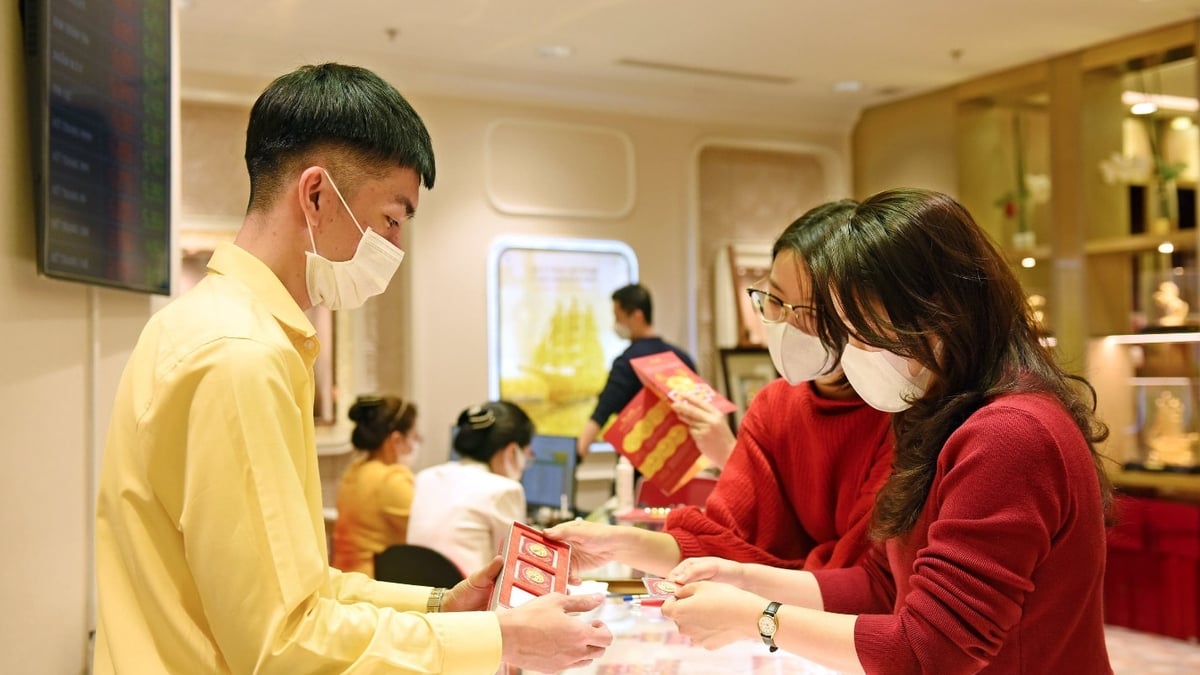Doctor Hoang Cong Tinh, Head of Intensive Care Unit 1, Hoa Binh General Hospital, said that the hospital had just successfully treated a patient with acute liver and kidney damage , blood clotting disorder, and respiratory failure requiring a ventilator due to Rickettsia.
The male patient was transferred in a state of respiratory failure, continuous high fever, chills, and infection and poisoning. His family said he was a farmer and kept honey bees on the rocky mountains, so he occasionally went up the mountain to collect honey.

Tick bites on a patient. Photo provided by the hospital
At the time of admission, the doctor discovered that the patient had a very characteristic wound caused by a gnat bite on the left buttock area. The wound was dry, crusted, and painless.
Paraclinical tests showed that the patient had acute liver and kidney damage, blood clotting disorders, and pneumonia. The patient was diagnosed with multiple organ failure due to scrub typhus, and was quickly placed on a ventilator, given specific antibiotics, and other measures to support organ failure.
After more than 1 week of treatment and intensive care, the patient was stable and discharged from the hospital.
According to Dr. Tinh, scrub typhus is an acute infectious disease with a high mortality rate if not diagnosed early and treated specifically. The disease has diverse symptoms and can be easily confused with other diseases.
The bacteria that causes the disease is called Orientalis, belonging to the Rickettsia family. The mite larvae carrying the bacteria will transmit the disease to humans through their bites.
Scrub typhus has typical symptoms, mainly fever, headache, body aches, skin ulcers caused by scabies bites, rash, swollen lymph nodes, damage to multiple organs (especially the lungs, heart, liver, etc.). The disease can occur sporadically throughout the year but is common during the rainy and hot season.
"To prevent tick bites, when going into fields or mountains, people need to wear closed clothing, clothing treated with insect repellent, and apply insect repellent to exposed skin areas. Avoid sitting, lying down, drying clothes, or placing backpacks on the grass, near bushes, or tree roots," Dr. Tinh advised.
Source
























































![[Maritime News] Container shipping faces overcapacity that will last until 2028](https://vphoto.vietnam.vn/thumb/402x226/vietnam/resource/IMAGE/2025/7/30/6d35cbc6b0f643fd97f8aa2e9bc87aea)













































Comment (0)